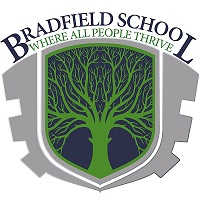Forgetting to Remember

KS4 students engage in tutor time revision
The American psychologist Daniel T Willingham says that ‘memory is the residue of thought’. In his book ‘Why Students Don’t Like School’ he argues that as a species, humans prefer not having to think hard, which is why we rely on memory for many of the decisions we make every day: it is far more reliable to rely on our memories than go through the effort of making decisions for every single step of every single process. Consider, for instance, how much we have to think when first learning to drive. We must consciously reflect on how to use the clutch, engage gears, check mirrors as well as steer and so on; all of this becomes much easier when we can do these things so well they almost become automatic.
This is the theory underpinning our revision initiative in Years 10 and 11 this year. Developed by Mr Thompson, Head of Year 10, and rolled out into Year 11 as well with Ms Ross, our KS4 students are a month into using the Leitner method of revision in form time. Teaching staff are supporting students to create one flashcard per lesson linked to key knowledge. Students keep these in form time to work on. In essence, over three tutor time sessions each week, students test themselves or one another with the flashcards, repeating the ones they got wrong more often than the ones they remembered. The effort required to think when trying to recall information is what helps transfer new knowledge to the longer-term memory: memory as the residue of thought. You can learn more about the actual process online:
Mr Thompson and I visited all the Year 10 tutor times this week, and it was pleasure to see the students and their tutors so engaged with the process. Mrs Pigott took feedback from her Year 10 tutees who confirmed that they are finding the experience helpful and beneficial. They also had some feedback on the most useful in class approaches to create the flashcards. For example, whilst they liked being able to write down specific facts and key definitions in some subjects, students also reported liking Mr Best’s technique of getting them to record processes such as key formulas or methods in mathematical problems. We fed back these views to subject leaders yesterday who will disseminate this to their teams.
This is very much an initiative in its infancy, and is, of course, only one revision method, but we are very impressed with its potential to help students cope with the volume of information they must retain and recall for their GCSE and vocational assessments. We are also very impressed to see how well students have embraced the idea.
Deborah Banks
Deputy Headteacher
